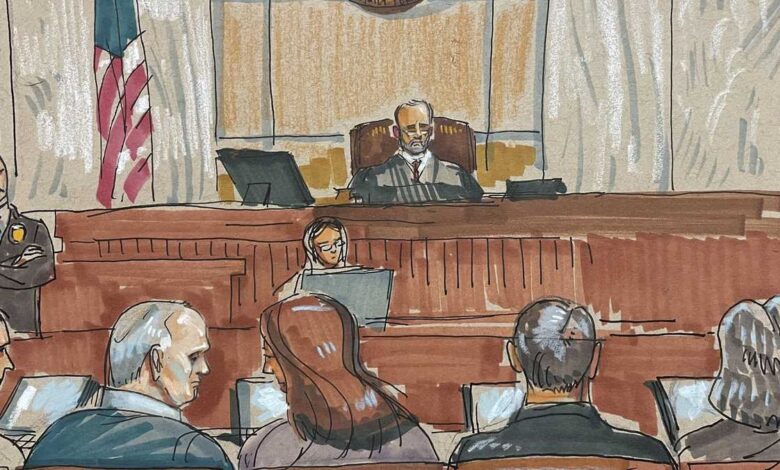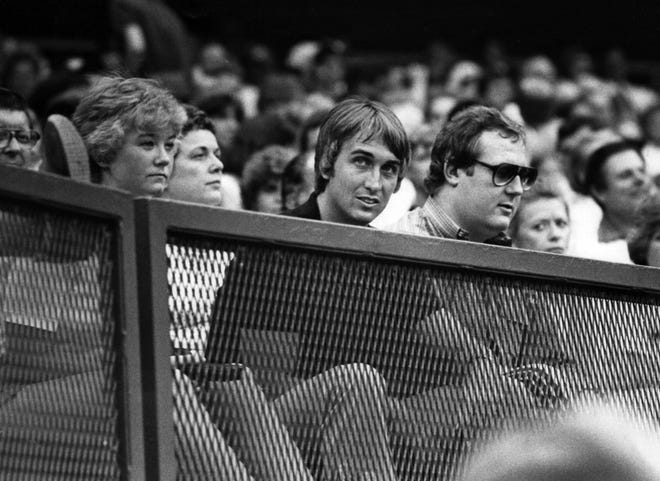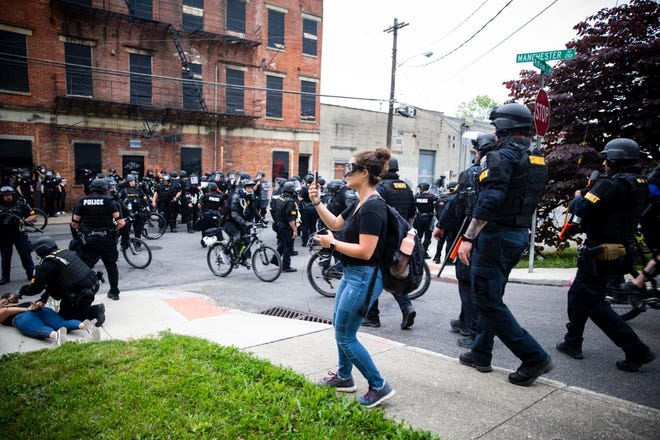

The jury in the Pittsburgh synagogue shooting trial has reached a verdict. The verdict is expected to be read shortly before noon on Friday. Assuming the jury returns a conviction, the trial would enter what’s expected to be a lengthy penalty phase, with the same jurors deciding Bowers’ sentence: life in prison or the death penalty. Bowers' attorneys have focused their efforts on trying to save his life.This is a developing story. Check back for updates.Deliberations began around 2:30 p.m. Thursday. Jurors heard closing arguments by prosecution and defense, plus a prosecution rebuttal. At one point, jurors had a question in regard to counts 40 to 47. They'd like instructions on the meaning of "intention to kill." Does Bowers have need to know the person was there? The prosecution says the elements for intent to kill do not require Bowers know the (specific) person was there. The defense thinks the answer is that Bowers did need to have knowledge the person was there.Editor's note: Some of the testimony described below may be graphic to some readers.Prosecutor Mary Hahn told the jury Robert Bowers turned a sacred house of worship into a hunting ground. She urged the jury to hold Bowers accountable for everything he did to the survivors and to the 11 people he killed.The prosecution walked jurors through the killings as Bowers moved through the synagogue, showing the jurors photos of the victims in life and then showing the images of their dead bodies inside the synagogue.She argued that the victims were targeted because of their religion. When Bowers surrendered to police, Hahn said it wasn't because he had a change of heart but because he had run out of ammunition.Hahn said Bowers boasted to police that he did it on his own and said that "all Jews need to die."The prosecution said in the U.S., everyone has a right to worship, but no one has a right to enter a house of worship and kill worshippers because of their faith.Public defender Elisa Long acknowledged the pain, horror and anguish of the victims and said the loss was immeasurable, and the defense offers no justification for that.She went on to argue the jury should focus on Bowers' intent, saying he didn't kill because of the victims' religious beliefs but because of his own thoughts about immigration.She pointed to his obsession with HIAS, a Jewish organization that provides services to immigrant refugees. While acknowledging Bowers' thoughts were nonsensical and illogical, she said Bowers made a connection in his own mind between Jews and immigrants, who he regarded as invaders.Long said it's clear Bowers believed he had to kill Jews because they were helping to bring immigrants.She said there's no doubt Bowers expressed his hatred for Jews on Gab, a far-right social media site, but that his intent wasn't to obstruct their participation in religious services.In a prosecution rebuttal, U.S. attorney for Western Pennsylvania Eric Olshan told the jury, Bowers expressed his hate for Jews and said it was his reason to kill. He argued the jury should take Bowers at his word.He asked where did Bowers go that day, to an immigration resettlement area, to the borders, to HIAS headquarters?Olshan said no; he went to Squirrel Hill, the center of the Jewish universe in Pittsburgh, to the Tree of Life synagogue building on that Saturday morning while worship services were underway.Olshan told jurors when someone goes to a place of worship and shoots worshippers with an AR-15, that is obstructing their free exercise of religion.The Associated Press contributed to this report.Sister station WTAE reporter Bob Mayo is tweeting from the federal courthouse. Follow his coverage below. WARNING: Some of the testimony may be graphic
The jury in the Pittsburgh synagogue shooting trial has reached a verdict.
The verdict is expected to be read shortly before noon on Friday.
Assuming the jury returns a conviction, the trial would enter what’s expected to be a lengthy penalty phase, with the same jurors deciding Bowers’ sentence: life in prison or the death penalty. Bowers' attorneys have focused their efforts on trying to save his life.
This is a developing story. Check back for updates.
Deliberations began around 2:30 p.m. Thursday. Jurors heard closing arguments by prosecution and defense, plus a prosecution rebuttal.
At one point, jurors had a question in regard to counts 40 to 47. They'd like instructions on the meaning of "intention to kill." Does Bowers have need to know the person was there? The prosecution says the elements for intent to kill do not require Bowers know the (specific) person was there. The defense thinks the answer is that Bowers did need to have knowledge the person was there.
Editor's note: Some of the testimony described below may be graphic to some readers.
Prosecutor Mary Hahn told the jury Robert Bowers turned a sacred house of worship into a hunting ground. She urged the jury to hold Bowers accountable for everything he did to the survivors and to the 11 people he killed.
The prosecution walked jurors through the killings as Bowers moved through the synagogue, showing the jurors photos of the victims in life and then showing the images of their dead bodies inside the synagogue.
She argued that the victims were targeted because of their religion. When Bowers surrendered to police, Hahn said it wasn't because he had a change of heart but because he had run out of ammunition.
Hahn said Bowers boasted to police that he did it on his own and said that "all Jews need to die."
The prosecution said in the U.S., everyone has a right to worship, but no one has a right to enter a house of worship and kill worshippers because of their faith.
Public defender Elisa Long acknowledged the pain, horror and anguish of the victims and said the loss was immeasurable, and the defense offers no justification for that.
She went on to argue the jury should focus on Bowers' intent, saying he didn't kill because of the victims' religious beliefs but because of his own thoughts about immigration.
She pointed to his obsession with HIAS, a Jewish organization that provides services to immigrant refugees. While acknowledging Bowers' thoughts were nonsensical and illogical, she said Bowers made a connection in his own mind between Jews and immigrants, who he regarded as invaders.
Long said it's clear Bowers believed he had to kill Jews because they were helping to bring immigrants.
She said there's no doubt Bowers expressed his hatred for Jews on Gab, a far-right social media site, but that his intent wasn't to obstruct their participation in religious services.
In a prosecution rebuttal, U.S. attorney for Western Pennsylvania Eric Olshan told the jury, Bowers expressed his hate for Jews and said it was his reason to kill. He argued the jury should take Bowers at his word.
He asked where did Bowers go that day, to an immigration resettlement area, to the borders, to HIAS headquarters?
Olshan said no; he went to Squirrel Hill, the center of the Jewish universe in Pittsburgh, to the Tree of Life synagogue building on that Saturday morning while worship services were underway.
Olshan told jurors when someone goes to a place of worship and shoots worshippers with an AR-15, that is obstructing their free exercise of religion.
The Associated Press contributed to this report.
Sister station WTAE reporter Bob Mayo is tweeting from the federal courthouse. Follow his coverage below. WARNING: Some of the testimony may be graphic
This content is imported from Twitter.
You may be able to find the same content in another format, or you may be able to find more information, at their web site.
Source link








